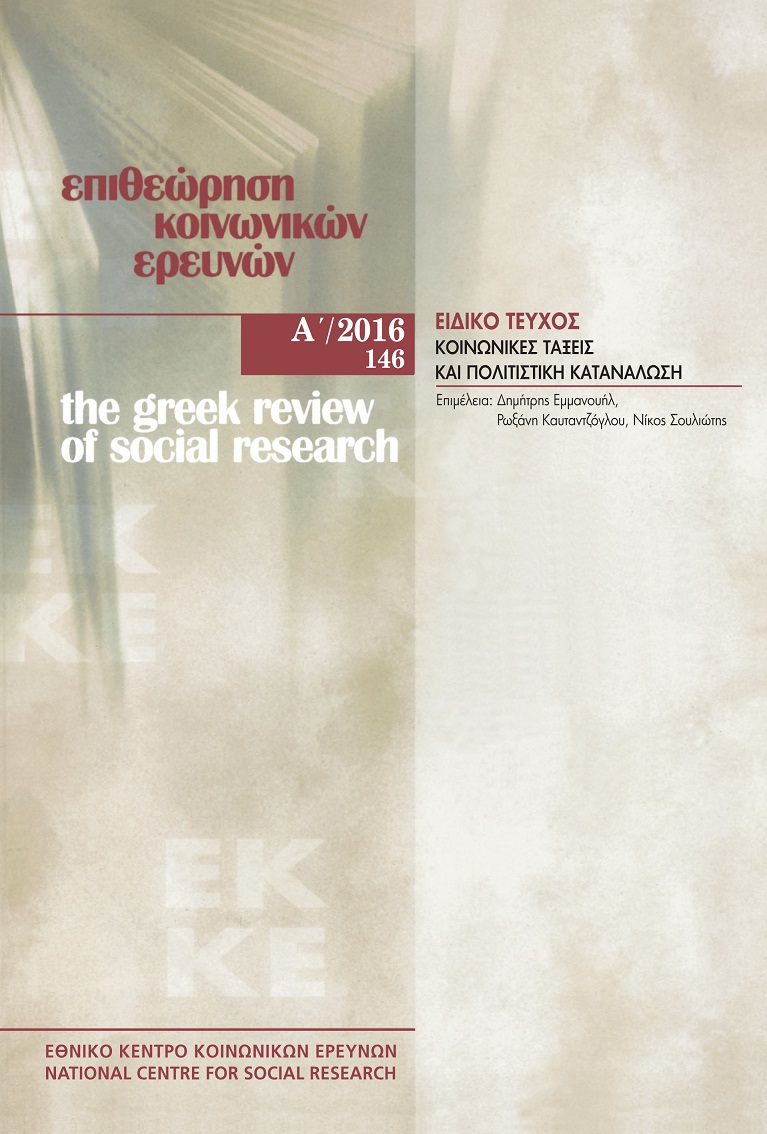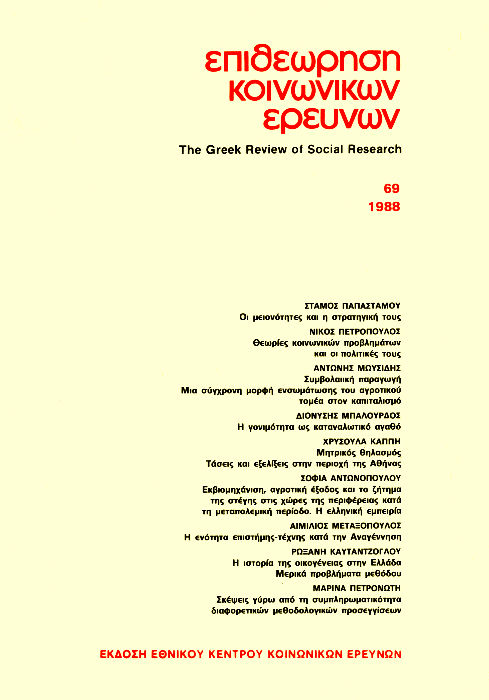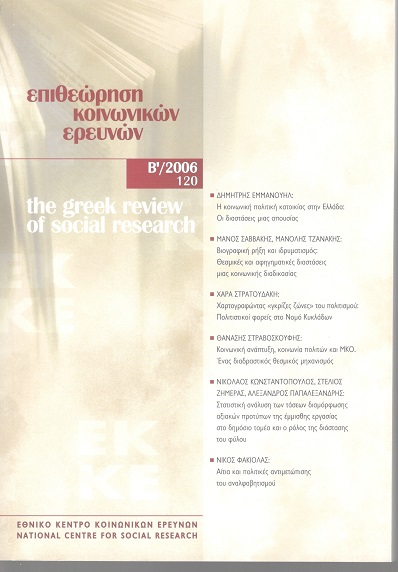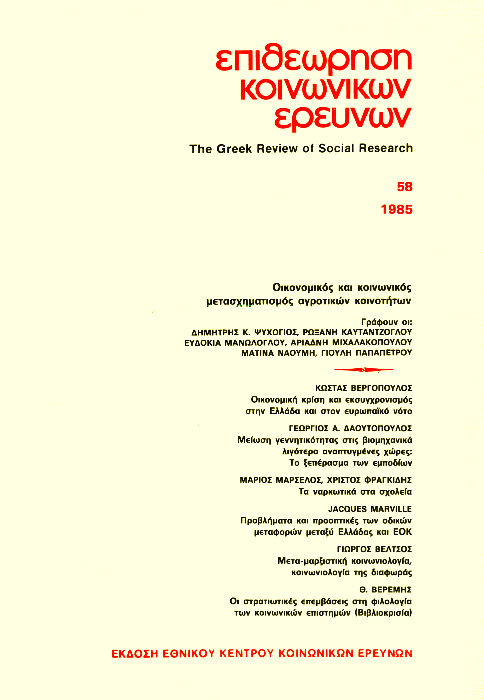Social stratification and cultural consumption: cinema going and choice of movie genres in Athens

Abstract
The article focuses on the relationship between social stratification and consumption of culture, namely cinema-going and the choice of film genres. The research findings are interpreted in light of the ongoing debate between P. Bourdieu’s theory of Distinction, the post-modernists’ individualisation argument, R. Peterson’s ‘omnivore’ model and B. Lahire’s theory of cultural dissonance. A central tenet of the approach is the neo-weberian distinction between status and socio-economic class. While our findings indicate the partial prevalence of the distinction mechanism advanced by Bourdieu, it should also be noted that there is no support of a systematic ‘homology’ between class and culture. Tendencies toward omnivorousness and cultural dissonance are present, albeit at very low rates.
Article Details
- How to Cite
-
Καυταντζόγλου Ρ., & Εμμανουήλ Δ. (2016). Social stratification and cultural consumption: cinema going and choice of movie genres in Athens. The Greek Review of Social Research, 146, 115–152. https://doi.org/10.12681/grsr.10647
- Section
- Articles

This work is licensed under a Creative Commons Attribution-NonCommercial 4.0 International License.
Authors who publish with this journal agree to the following terms:
- Authors retain copyright and grant the journal right of first publication with the work simultaneously licensed under a Creative Commons Attribution Non-Commercial License that allows others to share the work with an acknowledgement of the work's authorship and initial publication in this journal.
- Authors are able to enter into separate, additional contractual arrangements for the non-exclusive distribution of the journal's published version of the work (e.g. post it to an institutional repository or publish it in a book), with an acknowledgement of its initial publication in this journal.
- Authors are permitted and encouraged to post their work online (preferably in institutional repositories or on their website) prior to and during the submission process, as it can lead to productive exchanges, as well as earlier and greater citation of published work (See The Effect of Open Access).





